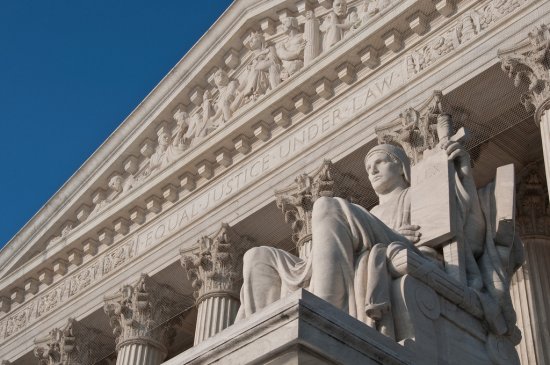For many Americans, bankruptcy is an important option to have when their debts become too unmanageable to pay. Chapter 13 bankruptcy allows you breathing room to pay back past due balances over time and regain your financial footing. Chapter 7 bankruptcy allows you to wipe out unsecured debt like medical bills, personal loans and credit card debt if your income simply won't support the debt. But in either case, retirement accounts are usually shielded from your creditors. But now, a Supreme Court ruling has changed how IRAs are weighed in bankruptcy in some cases.
IRAs have historically been exempted from bankruptcy
For a long time, ERISA plans like 401(k) and 403(b) retirement plans were protected from creditors during a bankruptcy. And in 2005, that exemption was extended to IRAs. An IRA is an “Individual Retirement Account” that you set up for yourself with a financial institution where you can sock away money for your retirement instead of, or in addition to, a work-based retirement account.
IRAs are commonly set up by those that are self-employed who don't have access to a 401(k) through an employer. Others end up with an IRA called a rollover because after leaving a job, they didn't have a 401(k) to roll it into and didn't want to leave the funds with their ex-employer. You may also have set up an IRA because you wanted to set more money aside each year than 401(k) rules allow.
Recent Supreme Court ruling on IRAs and bankruptcy
The good news is that your 401(k) is still 100% safe during bankruptcy. So are any IRAs that you set up for yourself personally. What the Supreme Court ruling covered was IRAs that are inherited. If you had a parent that had an IRA that they left to you in their will, you can't shield it from creditors during a bankruptcy based on the recent decision in Clark v Rameker.
In this case, a couple had opted to file bankruptcy but were trying to shield a $300,000 IRA the wife had inherited when her mother passed away. The Supreme Court ruled that it could not be protected in bankruptcy and their rationale makes sense. With a regular IRA, you cannot withdraw money early without facing a stiff penalty. But with an inherited IRA, you can access the money at will.
The debtors argued that an IRA is an IRA, but the bankruptcy judge disagreed. A district court reversed the ruling and the creditors pressed on and the case ended up with the Supreme Court. Justice Sotomayor wrote that because the funds were immediately available to the debtors they could use that to buy “a vacation home or a sports car immediately after her bankruptcy proceedings are complete.”
Think long and hard before you dig into your retirement account to pay debts
IRAs have historically been exempted from bankruptcy
For a long time, ERISA plans like 401(k) and 403(b) retirement plans were protected from creditors during a bankruptcy. And in 2005, that exemption was extended to IRAs. An IRA is an “Individual Retirement Account” that you set up for yourself with a financial institution where you can sock away money for your retirement instead of, or in addition to, a work-based retirement account.
IRAs are commonly set up by those that are self-employed who don't have access to a 401(k) through an employer. Others end up with an IRA called a rollover because after leaving a job, they didn't have a 401(k) to roll it into and didn't want to leave the funds with their ex-employer. You may also have set up an IRA because you wanted to set more money aside each year than 401(k) rules allow.
Recent Supreme Court ruling on IRAs and bankruptcy
The good news is that your 401(k) is still 100% safe during bankruptcy. So are any IRAs that you set up for yourself personally. What the Supreme Court ruling covered was IRAs that are inherited. If you had a parent that had an IRA that they left to you in their will, you can't shield it from creditors during a bankruptcy based on the recent decision in Clark v Rameker.
In this case, a couple had opted to file bankruptcy but were trying to shield a $300,000 IRA the wife had inherited when her mother passed away. The Supreme Court ruled that it could not be protected in bankruptcy and their rationale makes sense. With a regular IRA, you cannot withdraw money early without facing a stiff penalty. But with an inherited IRA, you can access the money at will.
The debtors argued that an IRA is an IRA, but the bankruptcy judge disagreed. A district court reversed the ruling and the creditors pressed on and the case ended up with the Supreme Court. Justice Sotomayor wrote that because the funds were immediately available to the debtors they could use that to buy “a vacation home or a sports car immediately after her bankruptcy proceedings are complete.”
Think long and hard before you dig into your retirement account to pay debts

